Absence of extrajudicial procedure hinders access to Ukrainian documents for TOT residents – Alena Lunova
In Ukraine, as of the end of 2021, according to the World Bank, more than 395 thousand people were living without identity documents. One of the main reasons for this situation is the temporary occupation of part of the territory of Ukraine by the Russian Federation, which began in 2014 and became even more widespread after February 24, 2022. The absence of access to Ukrainian documents, including birth certificates and passports, for residents of the temporarily occupied territories (hereinafter – TOT) increases the risk of statelessness on a daily basis.
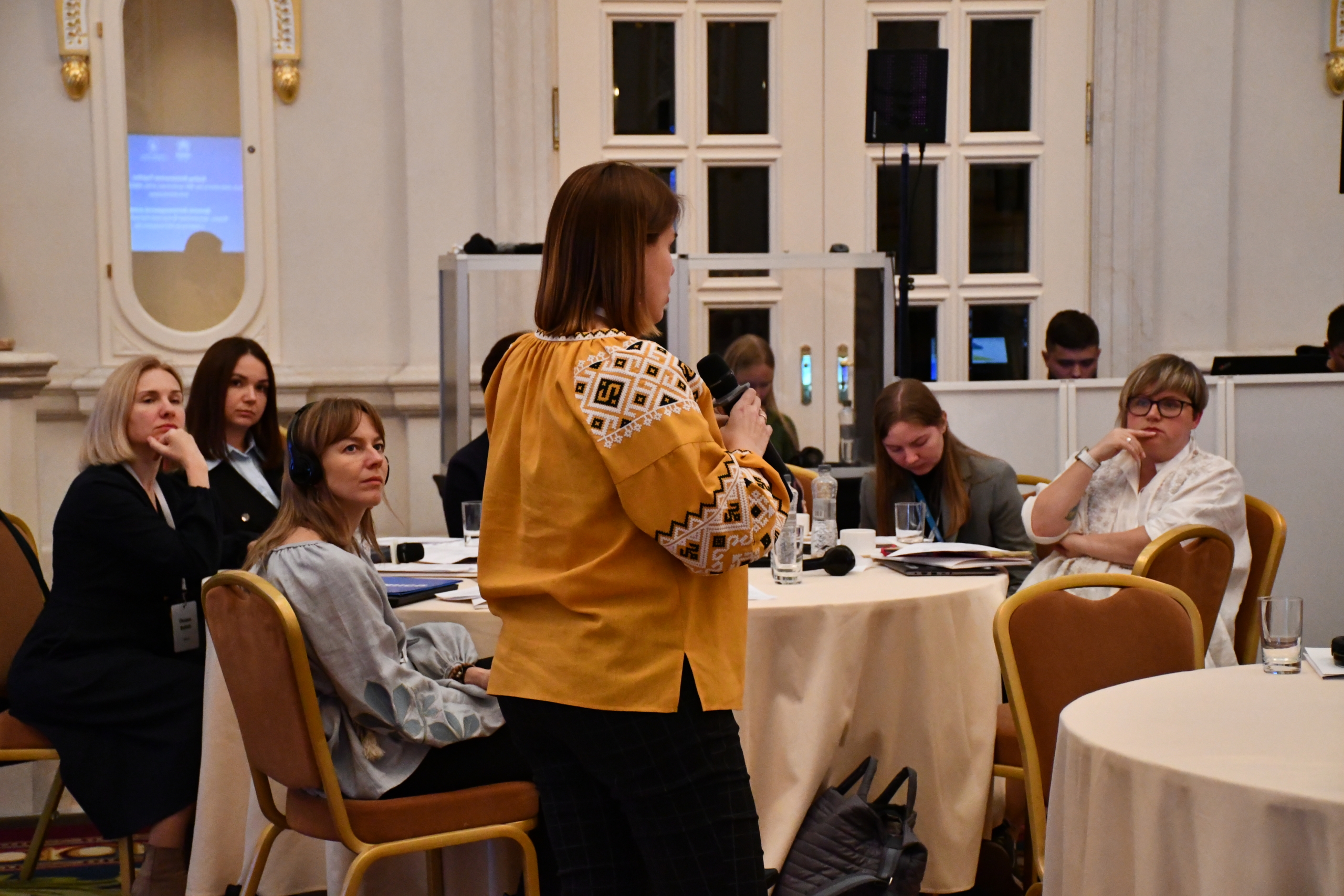
How to prevent the loss of Ukrainian citizenship? On October 25, representatives of state authorities, international and non-governmental organisations came together in Kyiv to look for answers and solutions to these questions at the forum “Overcoming Statelessness Together”. The event, dedicated to the 10th anniversary of the #ЯIсную (I exist) campaign to end statelessness, was organised by the UN Refugee Agency (UNHCR) and the Ukrainian Parliament Commissioner for Human Rights.
Access to birth registration
Sofiia Kordonets, Head of Assistance to Refugees, Asylum Seekers and Stateless Persons, CF Right to Protection, said that the problem of statelessness is very acute in Ukraine today and it begins with the registration of a child’s birth, as it is impossible to do so in the TOT.
“Currently, a child born in the TOT can be registered only upon arrival in the government-controlled territory and only through a court procedure, which greatly complicates access to birth registration and citizenship. The court procedure is complicated,” says Sofiia Kordonets.
For example, according to the Ministry of Justice, the total number of birth certificates issued by court order from February 2016 to September 2024 is only 64 000, which is less than the number of actual births. After the full-scale invasion, the situation worsened due to the suspension of routes, the closure of courts, and the loss of documents.
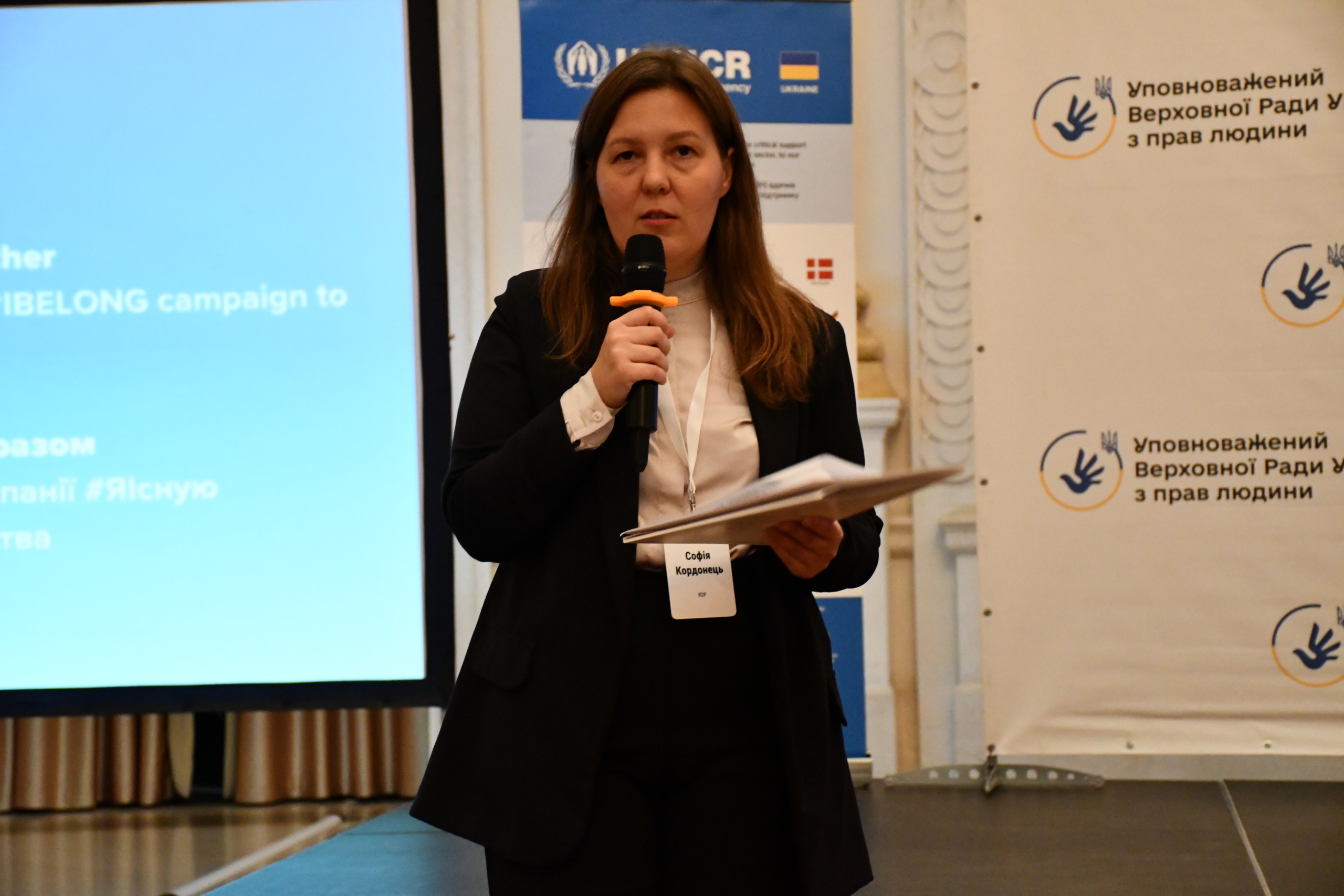 Sofiia Kordonets
Sofiia KordonetsAccess to identity documents
Another major problem is access to identity documents. There is almost no data on the number of residents in the TOT who live without documents confirming their Ukrainian citizenship.
“Similar to birth registration, access to Ukrainian passports is difficult and many people risk being left without legally recognised documents. A Ukrainian passport can only be obtained if there are previous records in digital registers showing that a person is a Ukrainian citizen. If there are no such records, but there are other ties to Ukraine, such as parents with Ukrainian documents, an administrative procedure with the involvement of witnesses at the State Migration Service of Ukraine may be applied. In all other cases, a judicial procedure is required,” emphasises Sofiia Kordonets.
The occupation is the main cause and threat of statelessness in Ukraine, which will only increase after de-occupation. Living without citizenship and documents is extremely difficult. The story of Andrii Li, who is officially recognised as stateless, proves this.
“I was born in the Republic of Tajikistan, at that time one of the republics of the Soviet Union. When I was 18, my parents and I moved to Ukraine. My parents had Soviet Union passports, and I only had a birth certificate. I had a desire to continue my studies and enter a university, but I had no documents. We took the first steps towards obtaining Ukrainian citizenship back in 1995 in the now-occupied Skadovsk, but nothing happened. We realised that we were people without rights because we had no documents. That is, we are there, but we are not. I was without documents for almost 30 years. I’m a living example of what can happen to people who live in the occupied territories,” Andrii Li shared his experience of being stateless.
He added that positive developments in this matter began only in 2019, when Andrii turned to the CF Right to Protection. Thanks to them, the man now has his third temporary residence permit in Ukraine, but has not yet received citizenship.
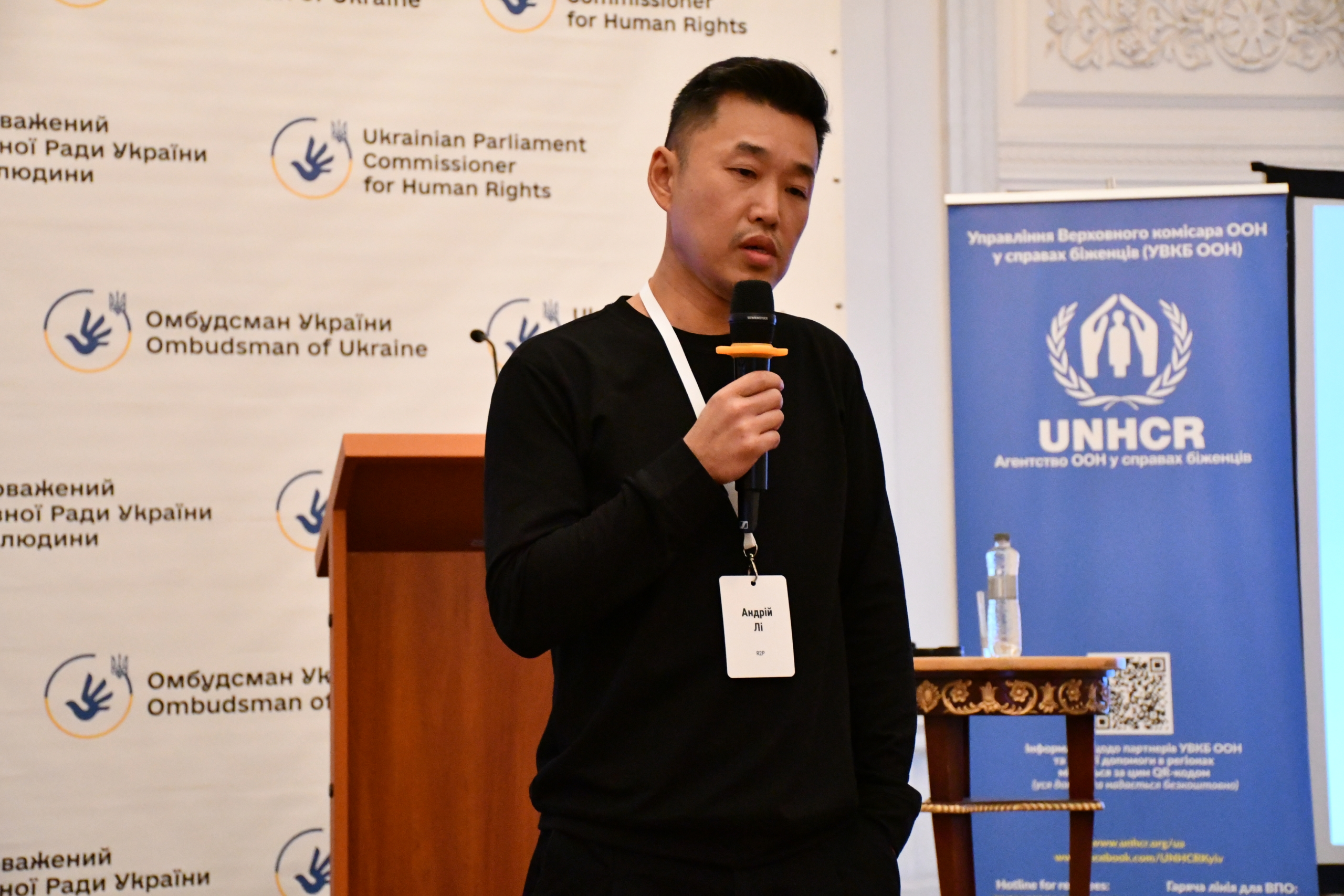 Andrii Li
Andrii LiHow to prevent the loss of citizenship
Alena Lunova, Advocacy Director of Human Rights Centre ZMINA, believes that the introduction of an administrative procedure for establishing the facts of births, deaths, marriages and divorces that took place in the TOT will help solve the problem and that the state should take this responsibility.
“Currently, we are living in the absence of an adequate out-of-court procedure regarding documents and civil status acts issued during the occupation. All the time we were talking about the judicial procedure that began in 2016. But the problem is not that there is something wrong with the judicial procedure itself – it is as simplified as possible. The issue is that it is a judicial procedure in general. Unfortunately, people who were affected by the war and who are in the TOT are forced to go to court, and this has a cooling effect on their desire to receive documents,” emphasises Alena Lunova
Moreover, according to her, it is now known about the births of approximately 1 in 10 children in Crimea and 1 in 5 in eastern Ukraine. That is, the state does not know about our children born under occupation, and this is a problem that can be solved by simplifying the system of paperwork. It should be administrative, the advocacy manager of Human Rights Centre ZMINA is convinced.
“The occupation of Crimea has been going on for almost 11 years, and in three years, children born on the temporarily occupied peninsula who have never had a Ukrainian birth certificate will receive Russian passports. In another four years, they may start families and have children. And delaying the simplification of obtaining documents affects the further reintegration of our people. Therefore, a response through the judicial procedure cannot be the only possible one, especially after the de-occupation of the territories. It can be a temporary, but not a permanent response from the state. Together with our partners, we are advocating for the simplification and implementation of an administrative procedure,” says Alena Lunova.
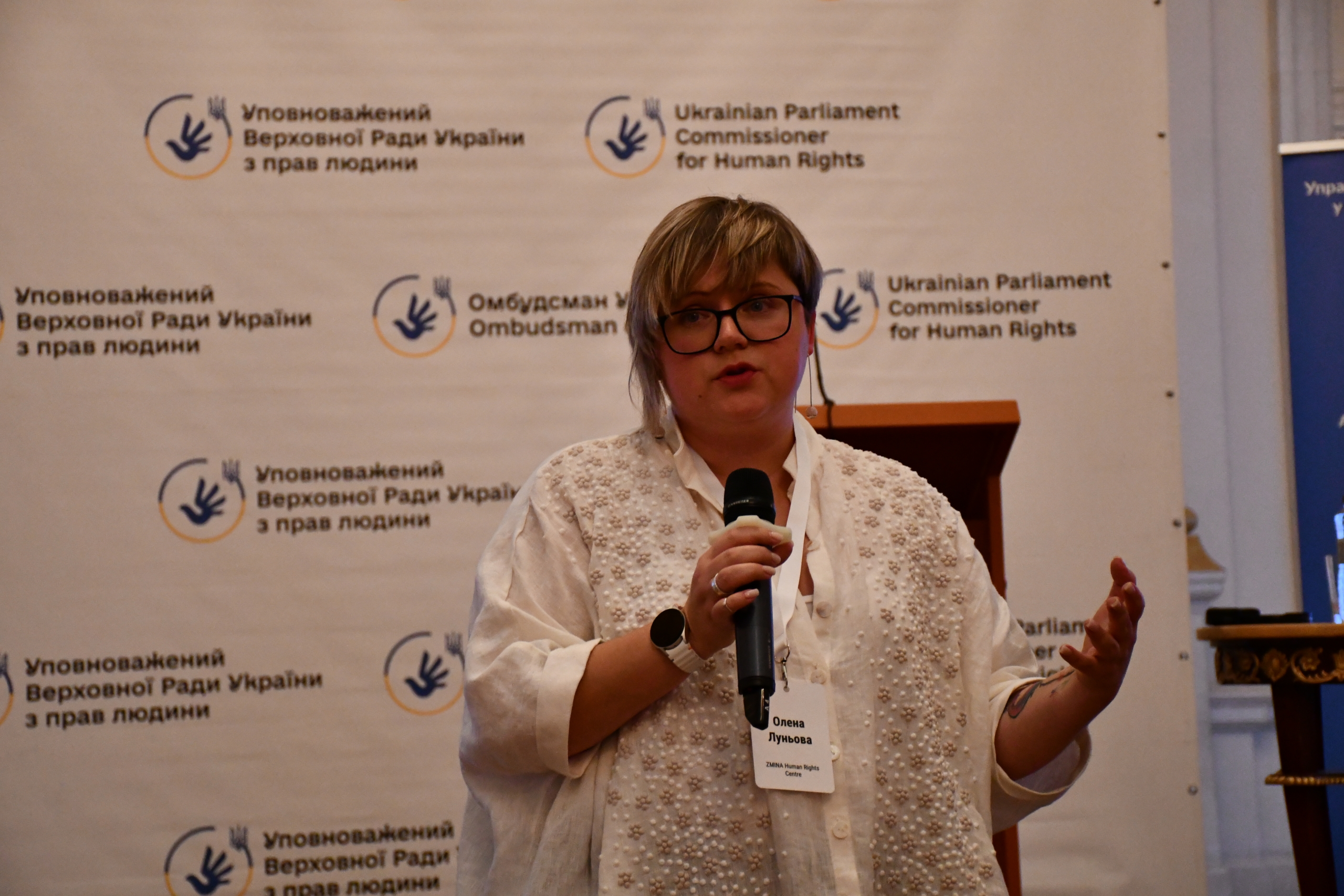 Alena Lunova
Alena LunovaThe ZMINA Advocacy Director added that the state should take responsibility in this matter.
“Draft law No. 9069 is currently pending in the parliament, the adoption of which will ensure the introduction of an administrative procedure. But its consideration is currently blocked. So, until there are legislative changes, we should talk about making decisions at the government level, because the legislation still allows us to make the administrative procedure real. It may be worth introducing an experimental procedure in pilot regions. It seems to me that the responsibility for the consequences of the occupation is now being shifted to the residents of the TOT. But part of the responsibility should be assumed by the state and the simplified procedure for obtaining documents for citizens who have already been affected by the war,” said Alena Lunova.
At the same time, Iryna Dubykivska, Head of the Department for State Registration of Civil Status Acts and Apostillation at the Ministry of Justice of Ukraine, stated that they had initiated draft law No. 9069 “On Amendments to Certain Legislative Acts of Ukraine on Peculiarities of State Registration of Civil Status Acts that Occurred in the Temporarily Occupied Territory of Ukraine and Outside,” which aims to simplify the procedure for registering civil status acts that took place in the TOT by establishing an appropriate administrative (extrajudicial) mechanism, but it is still under consideration by people’s deputies.
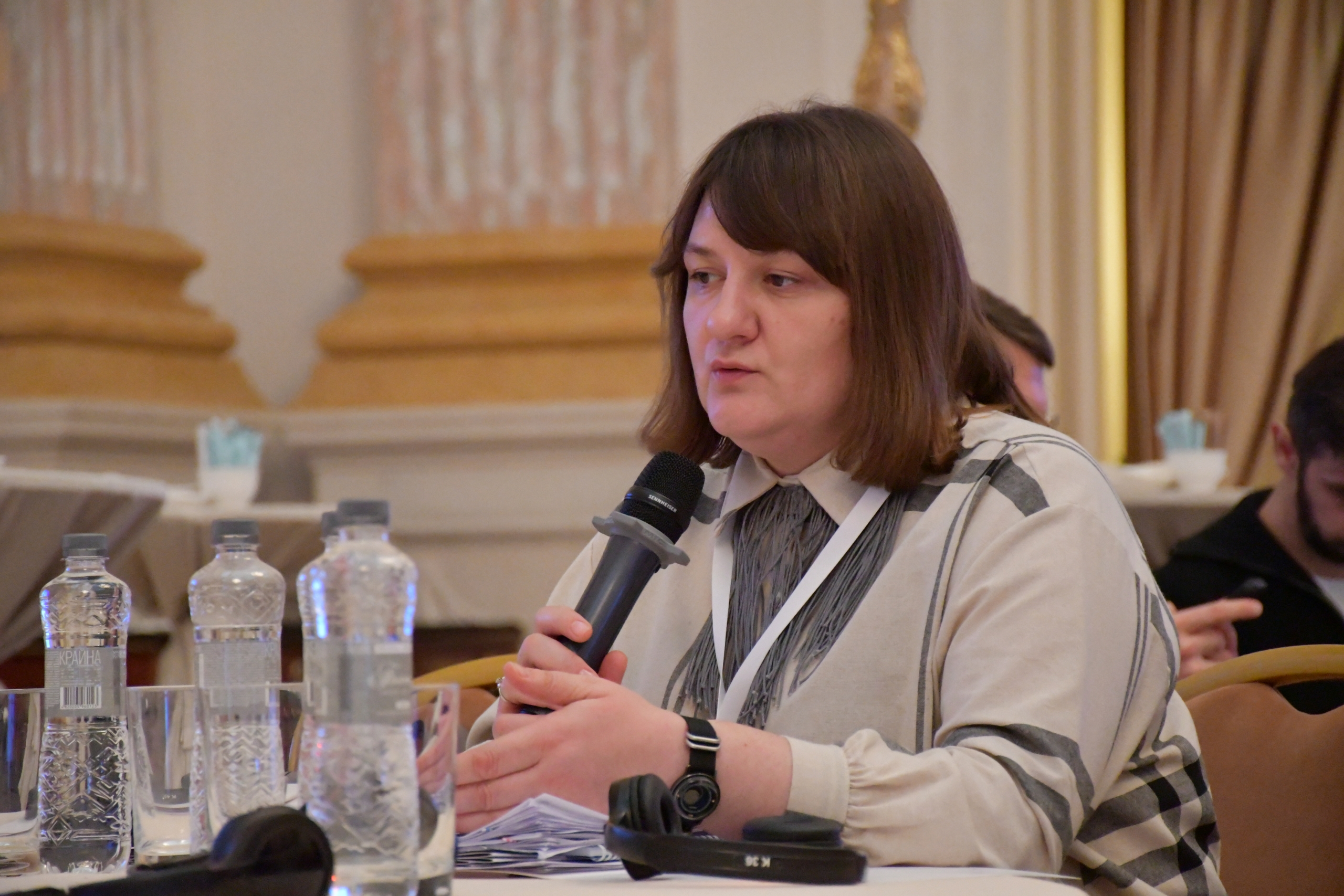 Iryna Dubykivska
Iryna Dubykivska“In fact, we have done everything that could be done on behalf of the Ministry of Justice. The draft law has been submitted, and the current judicial registration procedure is being enforced. Can the judicial system manage it? Yes. It is clearly regulated by our normative legal acts,” said Iryna Dubykivska.
Concluding the forum, Nina Schrepfer, UNHCR Deputy Protection Representative in Ukraine, stressed the importance of ensuring access to Ukrainian documents for citizens in the occupation who actually have no choice but to accept Russian passports.
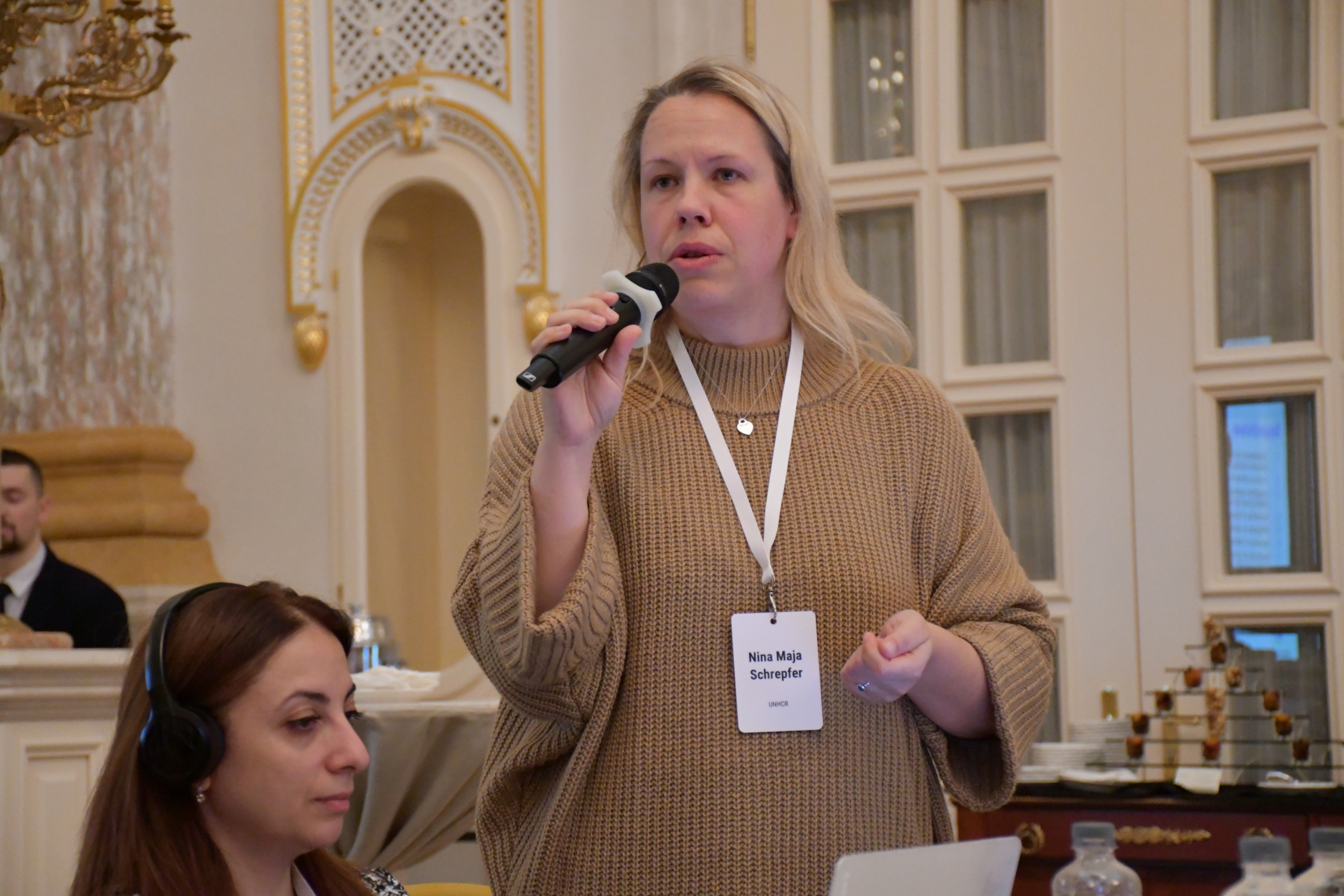 Nina Maya Schrepfer
Nina Maya SchrepferShe and a representative of the Ombudsman’s Office, Oleksandr Osipov, called on the state, civil society and international organisations to work together to address the issue of statelessness in Ukraine.
“We need to do everything to make as many people as possible visible to the state. This is a joint effort of the government and civil society,” Oleksandr Osipov summarised.
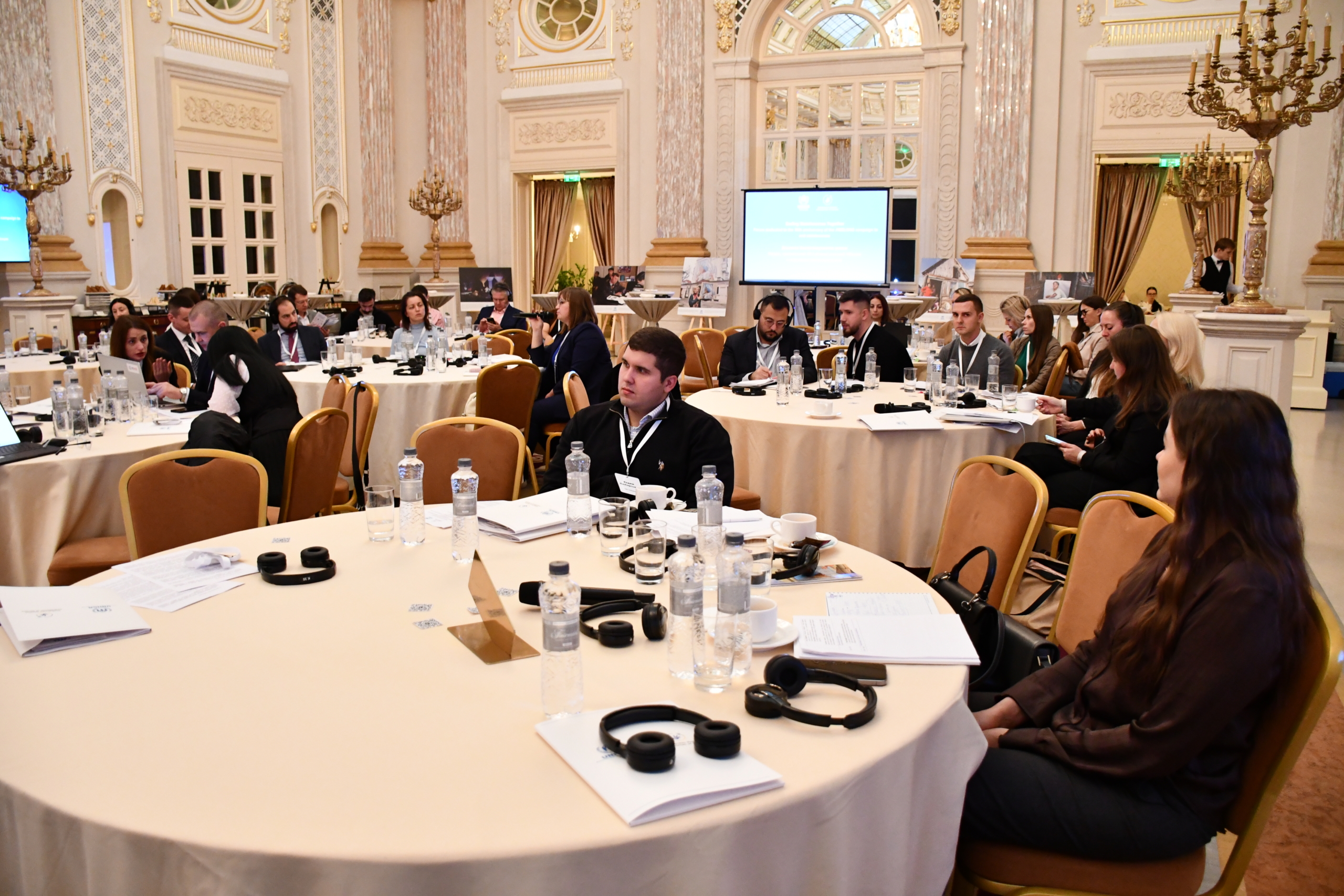
If you have found a spelling error, please, notify us by selecting that text and pressing Ctrl+Enter.















